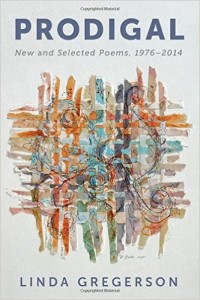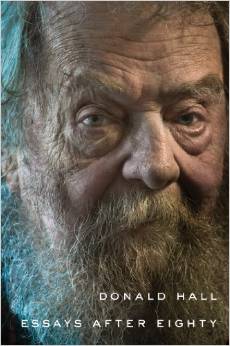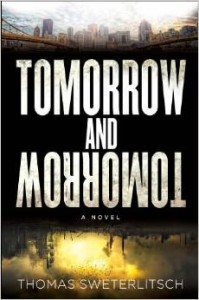
A review of The After Party, a poetry collection by Jana Prikryl (Tim Duggan Books | Crown, 2016).
In this poetry collection by Jana Prikryl, multiple voices strive to be heard. They include the casual (“I mean there was literally nothing I could do”), the symbolic (“Mr. Dialect”), and the winged “Parked magenta Lumina, / aluminum awning wool shoulders / of a coat shrugged on to run across the street / for milk await / the formal wear of snow, / remove from adjectives.”
What buoys this work most is ruminant abstraction, shown in “remove from adjectives.”
Such as this, from “Thirty Thousand Island,” a long poem:
Within the unflagging wringing concentration
that even a dippy vessel wants
in these waters
waits a state of mind not so much passionate
as cold in its stamina
as synced with the inefficiencies of time,
fused down into its crevices of scale,
happy in its specificities
True, there are also concrete specifics, as in this passage from “Siblings and Half Siblings”:
We sisters had the Vondörfer hair,
pink with ripples and electrodes in the right places,
wavy orange stuff environing our faces.
There’s a genealogical or genetic reference in the latter, but a paraphrase of “synced with he inefficiencies of time” would likely not be resolved by Prikryl family interviews.
Prikryl’s reflective voice shines in passages such as this from “To Tell of Bodies Changed”:
While a substance of landscape, mineral,
leaches into blood vessels
quietly steadily, meaning in this case
nothing is damaged;
extravagance of umbrella pines
propping their fingers under the bonus horizons
of the hills, redundancies
boosting the city’s resemblance to itself.
Snips from other poems: “regifting a responsibility,” and “The earth knows Andre Breton, / compiles ingenuous personalities in its fevered correspondence.”
In Dan Chiasson’s affecting review of this collection, which has much to recommend it, he writes that “Language in this enchanted book sometimes seems to have an independent intelligence.” It’s a complimentary but ultimately puzzling observation. Is this intelligence in the poem the intelligence of a unique character? Can the language be autonomous from writer and reader? A poem can take on many roles, but giving it agency is stretches autonomy too far.
In “New York New York” the poet’s intelligence is what preempts seer, scene, interpreter in the framing:
what meets me then
walking one island
or other
and in this scenario
I am half
the actor
stage and screen
whose moves
wow the well read
what meets me then
old flame
sufficiency
The sufficiency here is the sureness of the poet as framer.
Annotation or Drift
In this uncorrected proof copy, there are a few references at the end, such as to Wikipedia’s entry for “tidal locking.” But readers will have to look to English Lit for annotations of “the notebooks of STC.”
Annotation is handled well in “The Moth,” which provides a Science magazine quote or paraphrase at the outset. Poets and editors of same, take note. Hyperlinks aren’t only for the daily news. To refer to “quantum bits” with a specific analogical mapping, best to ensure that readers know this is a concept in physics (the qubit), not just a poet’s lightweight use of “bits” in a turn of phrase.
Despite the many questions these poems raise, then either leave unanswered or summon more research resources than seem feasible, there are gems to be found scattered hanging in the gallery of this collection. Whether these stanzas leave you curious or simply impressed with the intricate clockwork of Prikryl’s mind, it is a worthwhile voyage into loss, but not one will not leave you adrift without music or hope.
The book is dedicated to Ms. Prikryl’s brother Voyta, who in 1995 died suddenly, and far too young. He insinuates himself into many a stanza as more than filial fact or fate.






















